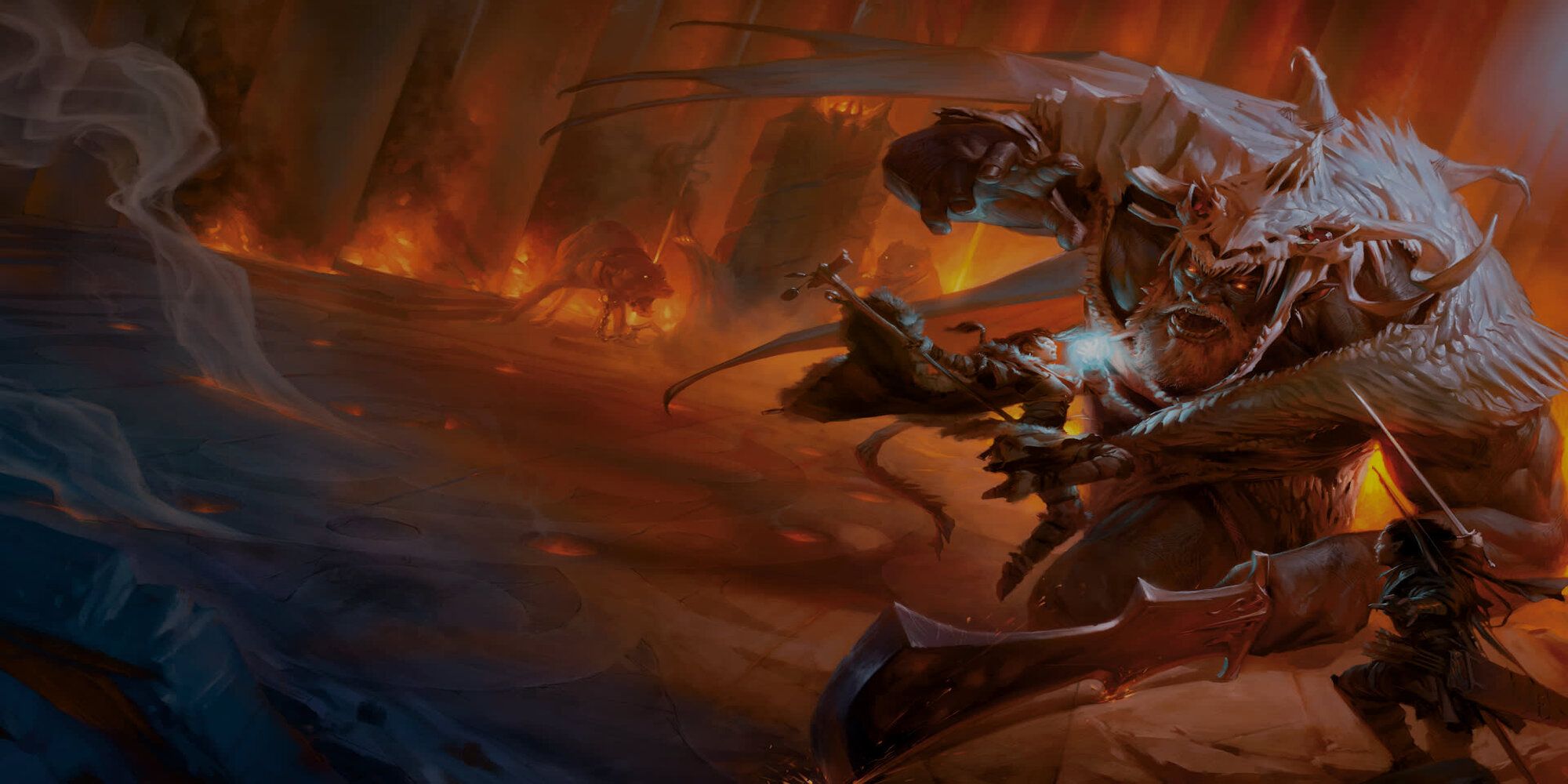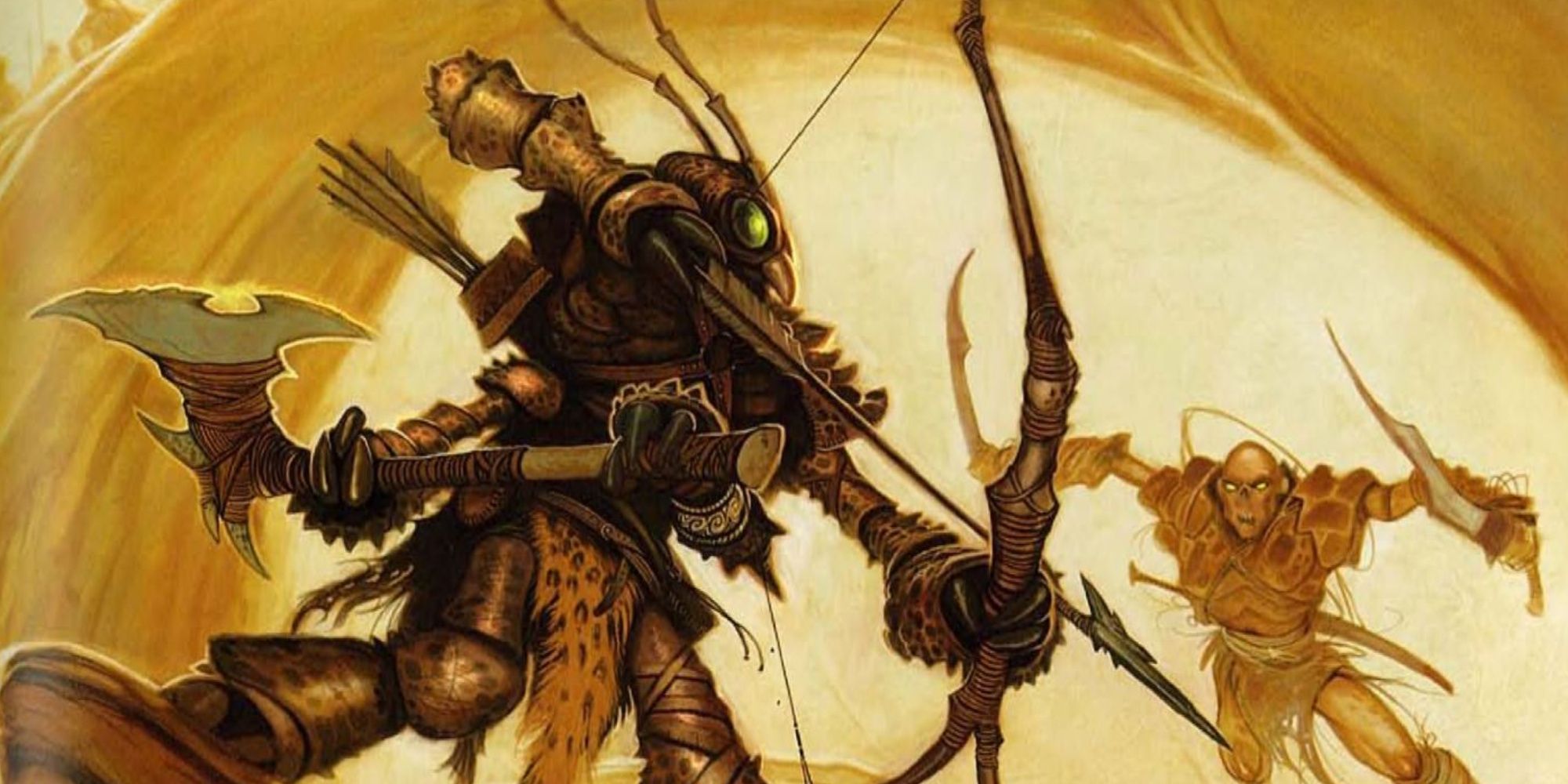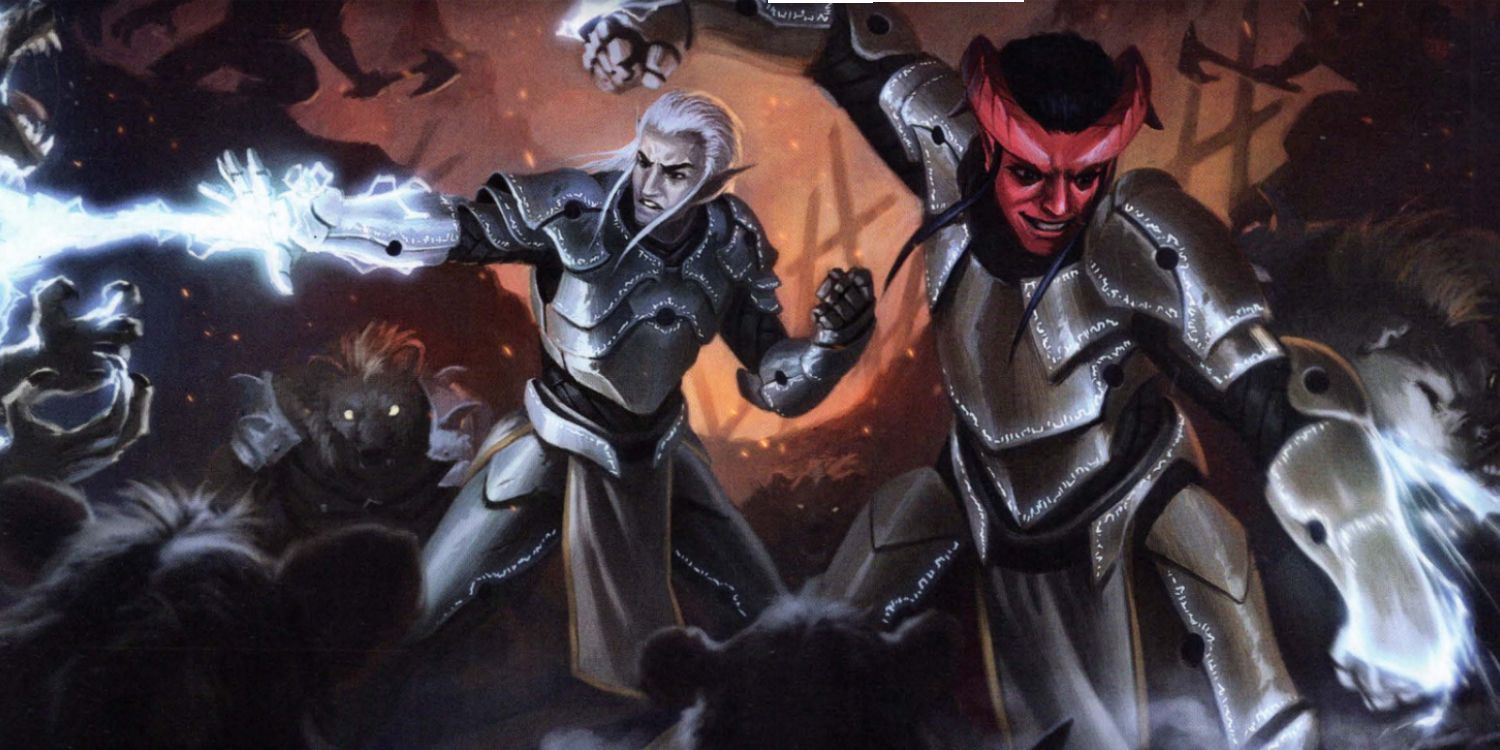It's a good thing my addictive personality drove me towards Dungeons & Dragons rather than heroin, otherwise I'd have nothing to write about today. Also I'd be addicted to heroin. Having spent the previous couple of years dabbling in playing D&D and having D&D-adjacent interests (Dragon Age, board games, fantasy stories), the last few months have seen me fall in deep, first trying my hand at DMing then quickly writing my own adventures, and mixing business with pleasure by frequently writing about Dungeons & Dragons and planning the site's coverage - another thing I could not do with heroin. But as I find myself drawn deeper and deeper into the pit of D&D, writing more and more, I realise there's nothing more stressful than other players.
I play Dungeons & Dragons with two groups at present. One, a group of real-life friends, has a few people who like to DM and we're yet to decide what direction our next adventure will go in. The second is the gang at TheGamer, who are kinda friends but also they work for me so they have to pretend they like me. We've just started an adventure I wrote with them, and at the time of writing have played three actual sessions, which amounts to one 'chapter' of the story. There are 11 chapters total. While all that's going on, I'm most of the way through writing a second, unrelated adventure, also with 11 chapters. It's just a cool number, I guess.
With one chapter out of 22 written (I'm not quite finished, so for easy maths, let's say out of 20), that means my second group is five percent of the way through my stories, and my other group is zero percent of the way through and may stay that way for some time if we head in a different direction. Some DMs take the Piano Teacher Method, staying only one lesson ahead of the kid, only planning the next session once the previous one has been completed. Others play a little bit of Whose Roll Is It Anyway, with bullet point plans for the key events in a town, dungeon, or storyline, and then making up what happens in between in collaboration with the players. Whatever works, works, but neither of those methods work for me.
I think of my style instead as being like a textbook. All the possible information is in there, even the stuff you're unlikely to need, but also every player has a pen to scribble things out, make annotations, draw their own conclusions, and there are blank lined pages for them to write their own story alongside it. But whether you're a piano teacher, improviser, or textbook writer, there is one fear that binds us all together - what if our players do something different?
No amount of planning, no matter how intricate or fool proof, survives contact with D&D players. So far, things have gone fairly well. The adventure started on an island, and while the group found novel solutions and approached characters differently than I might have expected, things went pretty much as planned. In the next town over, however, they skipped most of the activities entirely, instead thoroughly exploring a library that existed mostly for flavour text and then heading to a nearby fishing village invented on the spot as part of a hastily improvised detailed explanation of the already-improvised library.
This led to a nice escapade and kept my players in control of the story (writing on those blank essay pages in the textbook), and I can see why Piano Teachers and Improv Rollers do it this way. But just like most of the fun in a card game is building your deck as much as actually playing, the fun for D&D for me comes in the writing as much as anything else, so I'm not going to stop. As the adventures get more elaborate though, I start to see visions of my own doom.
The next session will be in a much larger city than my party has been to before. That means there's more to do, more ways to do it, and more to miss. But that's still small scale compared to what they're ramping up to. I'm yet to set them loose in a dungeon, and I have no idea how they'll approach it. I've planned football matches, conspiracies, murder mysteries, shootouts, naval battles, mazes, twists, turns, and cliffhangers, and I have no clue on how any of them will land. I'm putting together a jailbreak for an adventure they won't hit for another 17 chapters (or 51 sessions time), and I've ended up settling for a collection of basic ideas they could use rather than a scripted solution just to let them figure it out... although if they fail I'll have scripted back-ups.
I wouldn't have it any other way, of course - the joy of D&D is in the mutual storytelling as parties scribble all over your textbook, not only annotating but crossing out and correcting, and seeing how the party completely ignores or upends your plans is where the excitement comes from. Maybe I don't need to be planning out 51 sessions ahead, but I can't let this adventure settle until I finish writing the textbook and then wrap it up in plastic until they need it in a few semesters’ time. I should charge them $300 for the textbook - that seems to be the going rate.
My style of DMing will always be to piece together the best laid plans and then let the mice and men of my party spin them awry. But as I lay these plans, imagining how they might go awry only adds another layer when the party not only doesn't do the planned solution, they don't do the gone awry solution either. Playing with friends is the best part of D&D. But it might be the worst part too.




